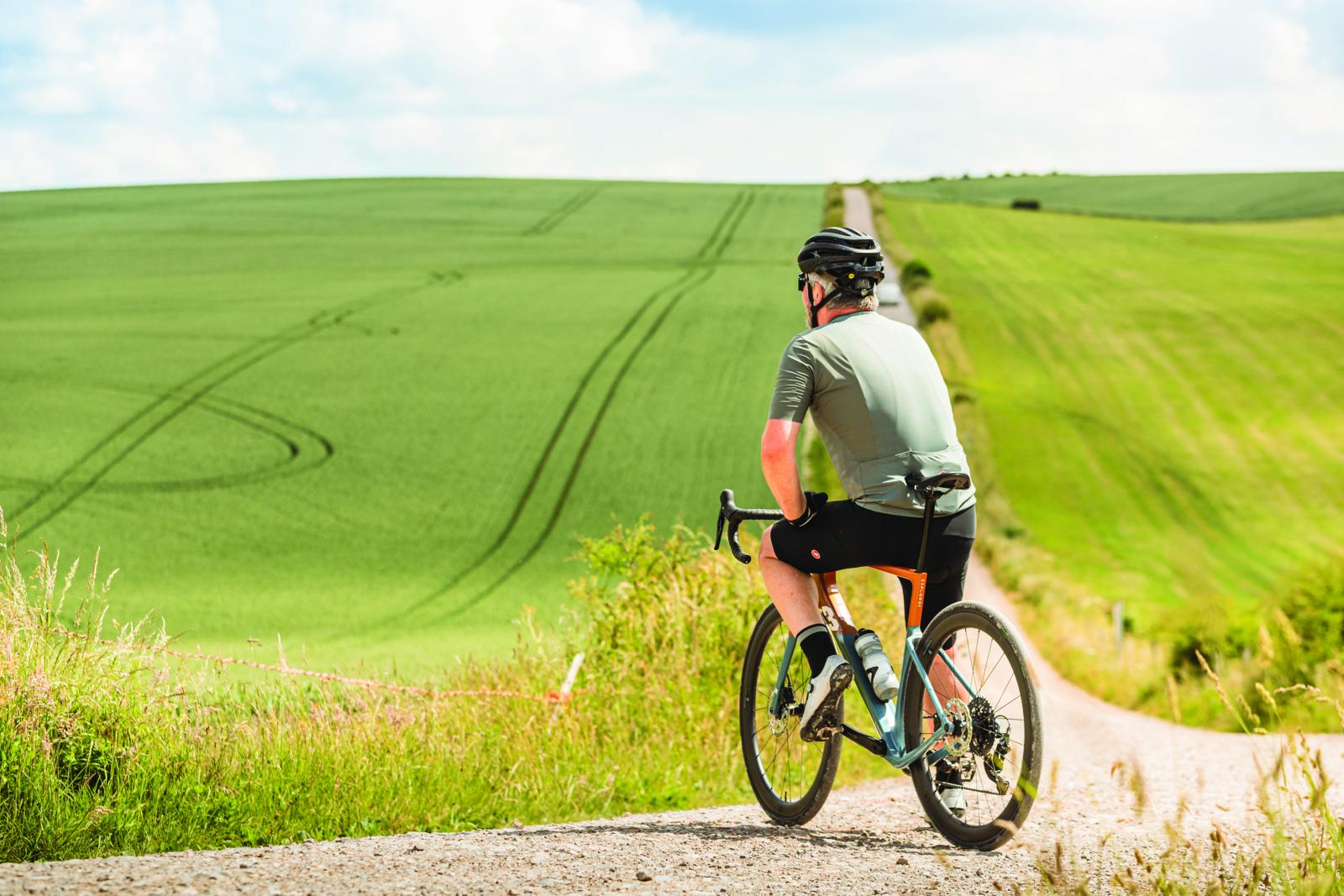Chapter 2 is the brainchild of Neil Pryde Bikes founder Mike Pryde. The new Rere, meaning ‘to flow’ in Maori, is its second model and a new aerodynamic design.
The Rere hits all of the design cues you’d expect, including the keyed-into-the-down-tube fork crown with sculpted airflow lines to condition the air around the head-tube.
The fork bows outwards away from the turbulent air of the front wheel, a design first pioneered by Pinarello, and the down tube has a cutout underside profile to clear and cover the front wheel’s trailing edge. The back end features shaped, kinked chainstays and dropped aero profiled seatstays.
The Rere looks great, the understated colourway and Maori tattoo-inspired graphics setting it apart from the crowd. The 7kg complete weight (XL) is impressive, as is the claimed 985g frame weight.

My XL test bike is the equivalent of a 58cm, and is very much in race bike territory. The steep angles (73-degree seat and 73.5-degree head) add a layer of sharpness to the handling, and the wheelbase, which creeps just over a metre, does nothing to temper the Rere’s nimble feel.
It’s unusual for an aero bike to feel quite this agile. Most major on stable handling at speed, but the Rere is something else. Its low weight makes it a formidable climbing companion and the swiftness of its reactions are fantastic for navigating twisty roads or progressing through the bunch.
The Knight wheels are also light (1,510g a pair) for 50mm-deep tubeless wheels and wear Schwalbe One tyres. I haven’t had a lot of experience with Knight’s wheels, but overall I was impressed.

The Knight-supplied brake pads feel a little hard compared to the latest SwissStop compounds used by the likes of Zipp and Roval, with the usually impressive Shimano Dura-Ace brakes feeling overly firm when trying to scrub off speed on steep descents.
Dura-Ace mechanical is as good as it gets when it comes to shift performance and the 52/36, 11-28 combination is the ideal setup for the Rere.
Comfort-wise the Rere is on the firmer side, but tubeless tyres enable you to eke out a bit more compliance on rougher surfaces by running lower pressures than standard inner tubes.

The Rere’s one-piece bar and stem, the Mana, is exceptional. The one-piece design means it has a smooth leading edge for hugely improved aerodynamics, but it’s the combination of stiffness when you sprint from the drops to comfortable compliance when you’re up on the hoods or tops that sets it apart. It’s available aftermarket (£453.30) and I’d certainly consider fitting one to my own bike.
The saddle is Rapha’s latest Pro cutout affair. The broad hind quarter shape with narrowing nose and large cutout is nice, but the hull feels firmer than similar designs from Fizik, San Marco and Prologo.
Chapter 2 has created a lightweight, fast handling bike with a true aero advantage, which up until now has only been achieved by the latest models from Giant (Propel), Specialized (Venge), Trek (Madone), Cannondale (SystemSix), and BMC (Timemachine). That Chapter 2 has achieved the same on a fraction of the development budget should be applauded, and unreservedly recommended by us.
Chapter 2 Rere specification
- Sizes: XS, S, M, L, XL* (*Tested)
- Weight: 7kg (58cm/XL)
- Frame: Carbon
- Fork: Carbon
- Gears: Shimano Dura Ace 52/36, 11-28
- Brakes: Shimano Dura-Ace direct mount rim brake
- Wheels: Knight 50mm carbon TLA (tubeless) rims, Rotor Revolver hubset
- Tyres: 25mm Schwalbe Pro One tubeless
- Bar and stem: Chapter 2 Mana one-piece aero carbon
- Seatpost: Chapter 2 carbon aero
- Saddle: Rapha Pro Team carbon cutout
- Price per spec: £6,200
- Frameset: £2,227 / $2,699 / AU$3,452
Chapter 2 Rere geometry
- Stack: 60cm
- Reach: 39.8cm
- Top tube: 58.1cm
- Seat tube angle: 73 degrees
- Head tube angle: 73.5 degrees
- Head tube length: 18.9 degrees
- Bottom bracket drop: 6.8cm
- Standover height: 82cm



